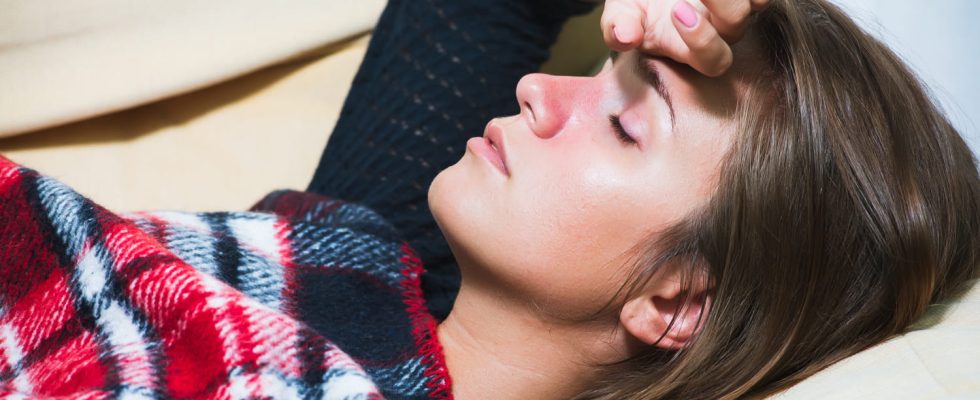The West Nile Virus (or West Nile Virus) is mainly transmitted by mosquitoes. Cases are reported in the South-West but also towards Cannes and Antibes.
Transmitted by mosquitoes of the genus Culex (the common mosquito in France, distinct from the tiger mosquito), the West Nile virus has several patients in France this summer. 7 cases were confirmed in Gironde by theRegional Health Agency (ARS) Aquitaineon August 8, 2023 and 6 in the Southeast by theARS Provence-Alpes-Cote d’Azur August 18. “In the south of France, where mosquitoes are very present, everything syndrome with a neurological disorder and high fever during the summer period, is subject to a detection test West Nile virus“explains Dr Pascal Del Giudice, infectiologist, and specialist in pathology.
What is West Nile Virus?
West Nile Virus West Nile Virus) is a arbovirus of the genus Flavivirus (Flaviviridae family). It is considered today as the Flavivirus most common after dengue fever. It was first isolated in 1937 in the West Nile district of Uganda (Africa)hence its name, recalls Public Health France. It has historically been responsible forepidemics in Africa, in the Middle East, West Asia and Europe. In France metropolitan, it is regularly detected around the Mediterranean. “It is transmitted to humans by mosquitoes, and more particularly by Culex Mosquito“, explains Dr Pascal Del Giudice, infectiologist, and specialist in pathology. In Europe the virus was initially introduced by migrating birds from Africa. “The main hosts of the virus are birdsmammals (like man) are accidental hosts“.
What are the symptoms of West Nile Virus?
“In 80% of cases, West Nile virus infection does not cause symptoms“, continues the specialist. The symptomatic forms of the disease are characterized by: sudden and significant fever after 3 to 6 days incubation, which can be associated with a rash (from discrete Red plaques). “THE serious forms of the disease are rare (less than 1% of cases) and mainly affect adults and in particular the elderly. These are neurological disorders which manifest themselves by meningitis, encephalitis, meningoencephalitis… Moreover, in the south of France, where mosquitoes are very present, any syndrome with a neurological disorder and a high fever during the summer period, is the subject of a test for the detection of the Nile virus.“.
What is the mortality from West Nile Virus?
In cases of severe forms, where the disease presents as a severe neurological form (aseptic meningitis, meningoencephalitis, acute flaccid paralysis, Guillain Barré syndrome) mainly described in weakened subjects, the lethality was evaluated at 2% of infectionsreports the Ministry of Health.
The diagnosis can be confirmed by biological analyzes carried out in the blood and/or in the cerebrospinal fluid (CSF)through a lumbar puncture.
Frequent infections in horses?
“The horse is a species that is particularly susceptible to the West Nile virus. The viral infection is characterized by fever, encephalomyelitis and paralysis of the hind limbs, and causes a significant mortality rate. Cases of horses infected with the West Nile virus have been reported in several countries in Europe and the Mediterranean basin: in Egypt, in Italy (1998), in Israel (2000), in the United States (1999-2004), in France (in the Camargue in 2000 and in the Pyrénées Orientales in 2006), in Guadeloupe in 2002, and in Morocco in 2003, 2010, recalls thePastor Institute.
“Those are the Migrator birds which act as reservoir animals for the West Nile virusexplains Dr. Del Giudice. Transmission of the virus to humans then occurs through bite of a mosquito, of the genus Culex. Mosquitoes become infected by feeding on infected birds“. Just like man, horses are also susceptible to infection. “The only vector of contamination being the mosquito, the disease is present only in summer, between June and October“.
What is the treatment for West Nile Virus?
“To date, there is no no specific antiviral treatment against the West Nile virus, concludes the doctor. Only the symptoms are treated: for example, by giving paracetamol to lower fever“. For the horse, a equine vaccine is marketed. Prevention of West Nile virus infection is limited to protection measures against mosquitoes (individual and collective)
Mosquitoes Culex mainly bite at sunset and at night, outdoors and in homes. To protect yourself, you must apply the traditional anti-mosquito advice:
- wear covering and loose clothing;
- use a skin repellent in the evening on exposed areas of skin;
- if necessary, use mosquito nets on the openings (doors and windows) ;
- sleep under mosquito nets, which may also be impregnated with fabric insecticide. There are crib nets for newborns;
- use fans and possibly air conditioners that bother mosquitoes;
- use electric diffusers inside homes;
- use insecticide coils only outdoors;
To limit the development mosquitoes around your home, you should:
- cover water supplies with mosquito nets or fabric to make them airtight;
- clean gutters and gutters;
- empty or store any container that may contain water (tip: fill the cups with sand);
- avoid illegal dumping of waste.
Thanks to Dr Pascal Del Giudice, head of the infectiology and dermatology department of the hospital center of Fréjus-Saint-Raphaël.
